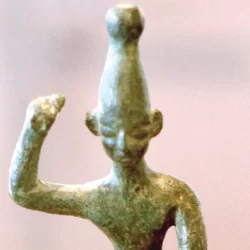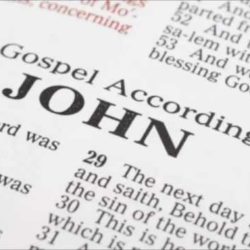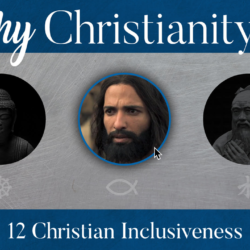Chesed is the word translated “steadfast love” (ESV/NRSV/RSV), “lovingkindness” (NASB), “loyal love” (NET), “love” (NAB), “faithful love” (HCSB/NJB), and “mercy” (KJV/NKJV/LXX). That there is such variety in the translations should alert us to the fact that this Hebrew word is difficult to render in English. Furthermore, this is no small word; in fact, chesed is the heartbeat of the psalms, which is repeated over and over as the central belief about God’s relation to his people—his chesed endures forever. It occurs 255 times in the Old Testament in the following distribution:
As you can see, this word enjoys wide distribution throughout scripture. But, it’s as deep as it is wide, forming the very core of God’s own character. We find this out when God reveals his attributes to Moses.
Exodus 34.6-7 [ESV]
6 The LORD passed before him and proclaimed, “The LORD, the LORD, a God merciful and gracious, slow to anger, and abounding in steadfast love and faithfulness, 7 keeping steadfast love for thousands, forgiving iniquity and transgression and sin, but who will by no means clear the guilty, visiting the iniquity of the fathers on the children and the children’s children, to the third and the fourth generation.”
In the translation above, chesed is “steadfast love.” God abounds in chesed and he keeps chesed, not giving up at the first sign of trouble. Chesed starts with God who graciously, lovingly establishes a covenant relationship with his people. He promises to remain faithful to it no matter what. Now, it is important for us to distinguish chesed from the word “love.” This is because love is often construed today as infatuation, intense fleeting emotion, or something exciting yet wildly unstable. God’s chesed is much deeper than that. His chesed is much more like the kind of love an old happily married couple shares. It is not a fickle love, which may find another on a whim, but a committed love; it is the kind of love that is firmly established in a covenant. There is no one word in the English language that can express this idea. To get a better handle on this important word, I’ve collected three scholarly definitions for your consideration.
“In the Psalms, both God and human worshipers describe God’s hesed as everlasting. This assertion is made in diverse forms (e.g., Ps 89:2, 28, 33; 103:17; 117:2; 138:8). In addition, one finds the related affirmation that God’s hesed will be sung about forever, which is an oblique way of suggesting that his love itself will not end. This diversity of expression coalesces in a refrain that rumbles exuberantly through a wide range of texts: “The LORD is good, his love (hesed) endures forever” (e.g., 1 Chron 16:34, 41; 2 Chron 5:13; 7:3, 6; 20:21; Ezra 3:11; Ps 100:5; 106:1; 107:1; Jer 33:11). This statement seems to have taken on an almost creedal status by the time these texts were worked into the canonical framework.”
D.A. Baer & R.P. Gordan, “חסד” in New International Dictionary of Old Testament Theology & Exegesis, vol 2., ed. Willem A. VanGemeren, (Grand Rapids: Zondervan, 1997), p. 215
“It is sometimes described as covenant love, though in the OT it rarely appears in the company of the word “covenant.” It is used in two connections: when someone makes an act of commitment for which there is no reason in terms of prior relationship, and when someone keeps their commitment when they might be expected to abandon it (e.g., because the other person has done so). It is the Hebrew equivalent to the Greek agape.”
John Goldingay, Psalms: Psalms 90-150, vol. 3, Baker Commentary on the Old Testament Wisdom and Psalms (Grand Rapids, MI: Baker Academic, 2008), page 753.
“No single English word can encompass all the connotations of this Hebrew word, but its basic idea is of passionate loyalty, especially of a superior to an inferior. In its basic usage, it refers to the obligations of covenant, but in the biblical experience of God, it comes to express that loyalty which goes far beyond any legal obligation in a passionate concern for the well-being of the other. It is this that God has for his people, which expresses itself in ‘grace,’ ‘mercy,’ ‘unfailing love,’ ‘kindness,’ and several other similar English words.”
John N. Oswalt, The Book of Isaiah: Chapters 40-66 (Grand Rapids: Eerdmans 1998), p. 420.
I take tremendous comfort in knowing that our God is a God of chesed. He is gracious and slow to anger, compassionate and not capricious. He longs for enduring relationships, not cheap thrills. Indeed, as the psalmists endlessly sing, “His chesed endures forever.”








Excellent. Thx.
It is hesed that heals a church. The practical application does as 1 Corinthians 13 states. If hesed is missing in a church, it becomes unfruitful. It is only by the application of hesed that a church and it’s members grow. The entire church community must be involved. Anything else amounts to false love. Something to consider for church leaders, no? 🤔